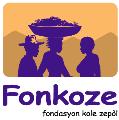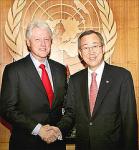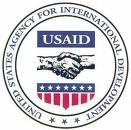More than 230,000 Haitian Children to Benefit from Improved Schooling
 The World Bank finalized a $24 million grant to Haiti that will help 230,000 children attend schools and receive quality education through tuition waivers and other forms of support. While the Haitian Constitution states children have the right to an education, the vast majority of schools are private and charge fees. Even with public schools, the cost of uniforms can be prohibitive. More information on the "Education for All" program is available here. The full announcement follows.
The World Bank finalized a $24 million grant to Haiti that will help 230,000 children attend schools and receive quality education through tuition waivers and other forms of support. While the Haitian Constitution states children have the right to an education, the vast majority of schools are private and charge fees. Even with public schools, the cost of uniforms can be prohibitive. More information on the "Education for All" program is available here. The full announcement follows. 







